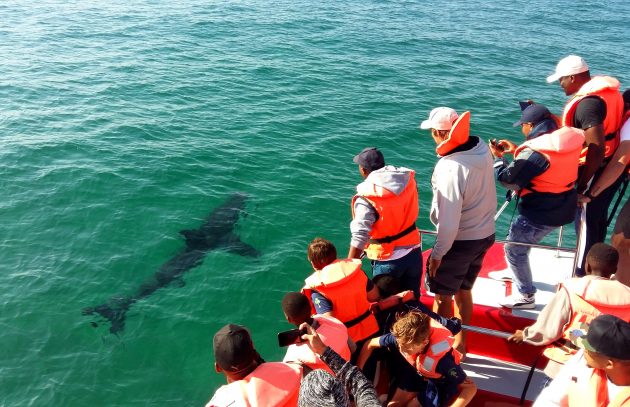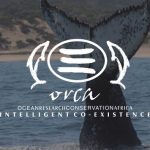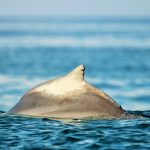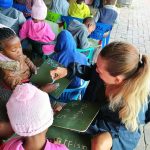RESEARCH
Overview
The ORCA Foundation offers a unique learning experience for volunteers who are passionate about the marine environment. It will allow you to make valuable contributions to increased knowledge, awareness and conservation efforts while supporting applied marine research. As part of our comprehensive volunteer programme, you will regularly receive the opportunity to assist our biologists to obtain hands-on participatory experience in boat-based and land-based fieldwork, as well as marine mammal stranding response and necropsy.
Our research partners facilitate the collection of scientific data on various marine top predator species in Plettenberg Bay, some of which are endangered (eg. the Indian Ocean humpback dolphin and the Great white shark) and others that are more prolific (eg. The Cape fur seal). They collaborate on various monitoring projects focusing on cetacean photo-ID, abundance estimates and habitat use; seal population monitoring, diet, and estuarine presence; seal-fisheries interactions and seal-shark interactions. Furthermore, our biologists are members of the Plettenberg Bay Marine Mammal Stranding Response Network, a voluntary group acting on behalf of the Port Elizabeth Museum. They are appointed as agents of the museum to attend to marine mammal strandings, perform necropsies and collect samples for existing research projects.
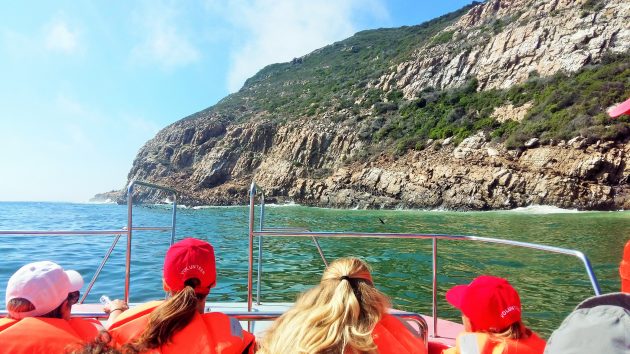
Projects
Research- Marine Mammal Stranding Response and Necropsy
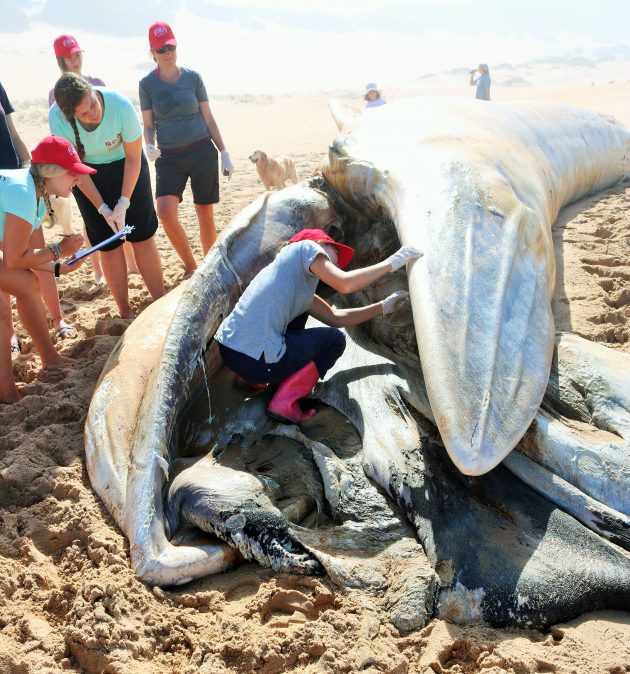
You will occasionally attend to dead whales, dolphins and seals ashore to assist biologists with scientific dissections and the collection of samples for research. Samples are transported to the Port Elizabeth Museum on a monthly basis where it is used in various ongoing studies on marine mammal morphology, taxonomy, population structure, diet, health, fisheries interactions and predator-prey interactions. You may also get an opportunity to assist with rare events involving live seals ashore to capture, tag, move and/or release them. Stranding events involving live dolphins or whales are extremely rare.
Research- Opportunistic Boat-Based Surveys with Ocean Blue Adventures
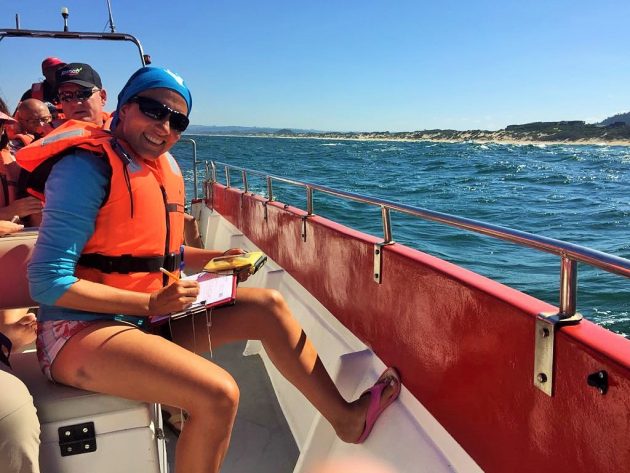
You will join Ocean Blue Adventures on their commercial whale and dolphin watching boat trips when there are available seats to record opportunistic sightings of marine animals such as whales, dolphins, seals, sharks and seabirds. When whales and dolphins are encountered you will take dorsal fin photographs for photo-identification research. Sightings of injured, entangled or vagrant seals hauled out on Robberg Peninsula are also photographed and recorded.
All data is intended for use in existing collaborative research and citizen science projects, and will provide scientists with information on aspects such as the spatial distribution of various species within the bay, individual movement patterns, changes in group sizes, population health, predator-prey interactions and human-wildlife interactions.
Research- Boat-Based Humpback Dolphin Surveys
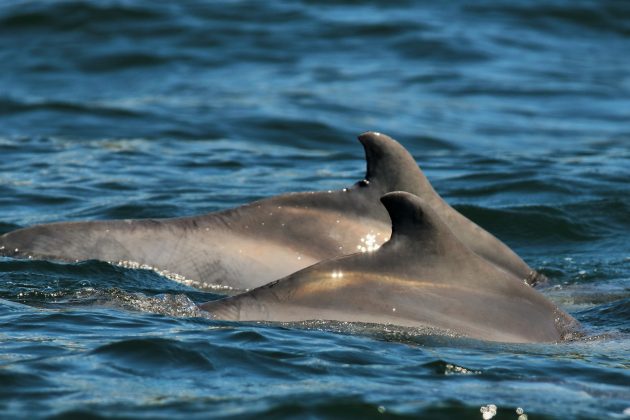
The Indian Ocean humpback dolphin was recently listed as endangered in South African waters and faces a number of anthropogenic threats due to its preference for shallow coastal waters. With population size believed to be around 500 individuals, it is considered to be South Africa’s most endangered resident marine mammal. You will assist our biologists during dedicated boat-based surveys (4 per month) to collect sighting and photo-identification data. Data will contribute towards an existing collaborative research project of the Nelson Mandela University, which aims to increase our knowledge of this species, assess trends in population numbers and inform conservation management decisions with scientific advice.
Research- Boat-Based Seal Population Monitoring in the Robberg Marine Protected Area
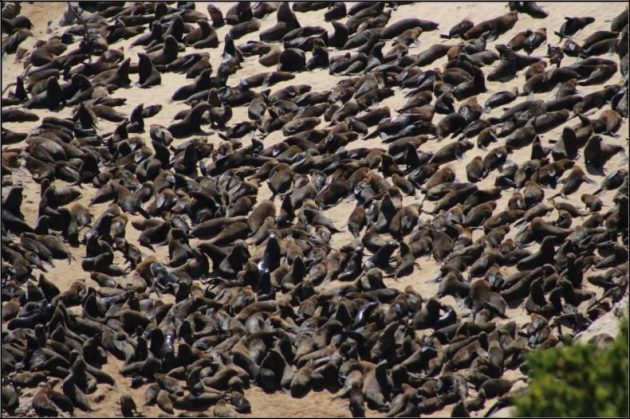
You will assist our biologists during routine boat-based surveys (4 per month) to Robberg Peninsula to monitor the number of seals that haul out, and, from November-February the number of new-born pups. This long-term monitoring project will allow further examination of trends in local seal population growth. It will also allow new research on the impact of easterly storms as a natural mortality factor in pup survival rates at this colony. Reliable pup counts over the next few breeding seasons will inform managing authorities of the possible change of the status of the colony from a former haul out site to a full-on breeding colony. You will also record tag re-sights and any injured or entangled seals as part of existing research projects on seal-shark interactions and seal-fisheries interactions.
Research- Boat-Based Monitoring of Cape fur seals in the Keurbooms River Estuary
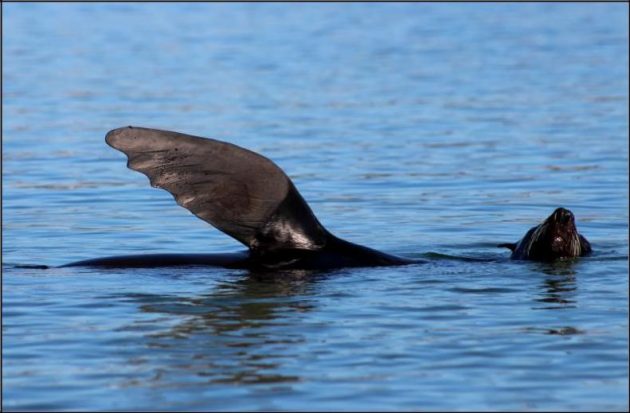
Fishermen have encountered Cape fur seals in the Keurbooms River estuary for many years and there are numerous anecdotal reports of them preying on important recreational fish species that are also of conservation concern. In the past, due to public pressure, this has led to the selective removal of so called ‘rogue’ seals by river management authorities. However, the existence of river-specialists, whether such individuals have a greater impact on estuarine fish species than individuals in the general population, and the potential effect of their removal, has not been examined.
You will assist our biologists during dedicated boat-based surveys to record the presence, individual identity and behaviour of these seals. Using photo-ID techniques you will identify individuals with unique flipper scars. Prey species will also be identified from photos taken during predation events. With this we aim to determine whether individual seals specialize in feeding on estuarine fish species, and whether their behaviour is seasonal, tidal, sex or age specific. The study further aims to place the impact of river seals into context with current recreational fishing pressure, which you will also record.
Research- Cliff-Top Monitoring of Seals, Sharks, Whales, Dolphins and tourism activity in the Robberg Peninsula Marine Protected Area
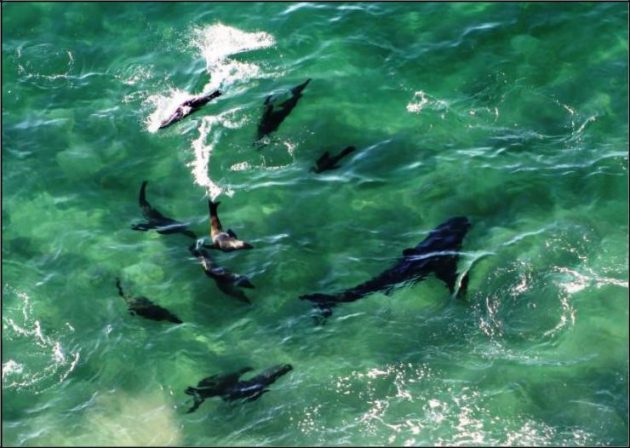
You will regularly hike out on Robberg Peninsula to perform dedicated observation sessions from designated cliff-top monitoring sites. From here you will record environmental conditions and the presence and behaviour of seals, sharks, whales, dolphins, tourism vessels and anglers within the Robberg Marine Protected Area. Your information will be used by scientists to monitor seal-shark interactions and the importance of the marine protected area to marine mammals and the boat-based tourism industry.
Research- Seal Diet Monitoring
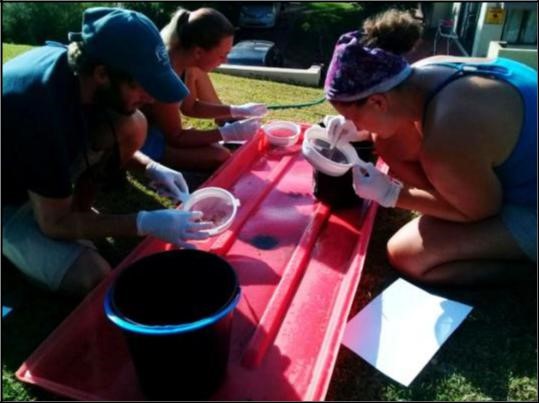
Our biologists collect monthly scats samples to update the current diet of Cape fur seals that haul out on Robberg Peninsula. You will assist them with routine processing of samples and preliminary identification of prey remains for future analyses. Data will be used to aid in studies examining the role of seals in the Agulhas Current and their interactions with fisheries. This is especially important to monitor the impact of recent changes that have taken place in the Agulhas Current ecosystem.
Research- Intertidal Baboon Scat Surveys
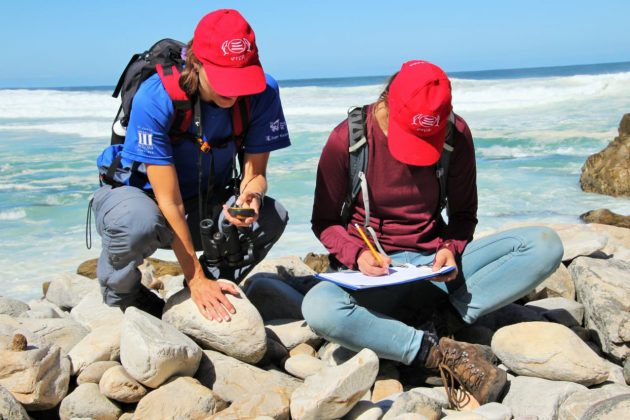
You will assist with intertidal baboon foraging research by participating in weekly hiking surveys at four different sites along the Garden Route coastline. During these hikes we aim to record the number and location of baboon scats, as well as collect them for subsequent diet analysis. Additionally, we also record sighting data of any baboon troops observed during the hikes. This data collection is done as part of a PhD study by Maxine Whitfield-Smit, based at the Centre for Coastal Palaeoscience at Nelson Mandela University. Maxine’s study aims to determine the degree to which Chacma baboons forage along the South African coastline and what factors influence their preference for certain areas of the coastline. Most of these hikes are long and strenuous and require a high level of fitness. Certain sections are not suitable for volunteers who fear heights.
